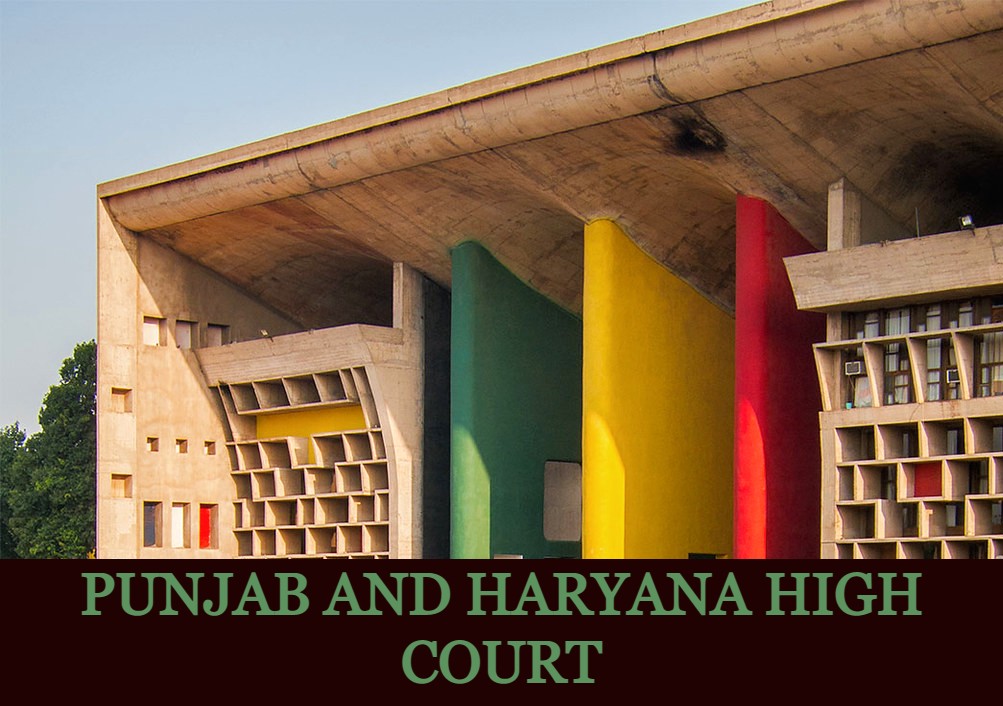In CR-617-2021 (O&M)-PUNJ HC- When plea of res judicata is raised, mixed question of law and fact arise which cannot be gone into without any evidence on record and such case cannot be dismissed on application under Order 7 Rule 11 CPC: P&H HC Justice Alka Sarin [31-05-2022]

Read Order: Shashi Kant @ Niku (now deceased) through his LRs v. Bala Parshad and Others
Monika Rahar
Chandigarh, June 2, 2022: While dealing with a revision petition by the defendant- petitioners assailing Trial Court’s order dismissing their Order 7 Rule 11 CPC application, the Punjab and Haryana High Court has categorically held that when the plea of res judicata is raised, the same being a mixed question of law and fact, cannot be gone into without there being any evidence on the record and, thus such a case is not one that can be dismissed on an application under Order 7 Rule 11 CPC.
The Bench of Justice Alka Sarin held in this regard, “The question whether the suit is barred by the principles of res judicata would be a mixed question of law and fact… Order 7 Rule 11 CPC can be invoked when on the face of it i.e. on a meaningful reading of the plaint and the documents attached therewith, the suit does not disclose a cause of action; is undervalued; has been filed on insufficiently stamped papers; where it appears to be barred by any law; where it is not filed in duplicate; or where the plaintiff does not comply with the provisions of Rule 9”.
The Court further added that Order 7 Rule 11(d) CPC has limited application and that on a reading of the plaint it should be apparent that the suit is barred by any law.
The Court was called upon to decide a revision petition under Article 227 of the Constitution of India which was filed impugning the order of the Trial Court whereby the application filed by the defendant-petitioners under Order 7 Rule 11 read with Section 151 of CPC seeking rejection of the plaint was dismissed.
Briefly stated, the facts of the matter are that the suit property was originally owned by one Shree Niwas, who died in the year 1934. He was survived by his seven children (Shyam Sunder, Kunj Bihari, Krishan Sarup, Brij Nandan, Mohan Lal, Nitya Nand and Vidyawati).
Nitya Nand died issueless, while Vidyawati filed a Civil Suit seeking a declaration to the effect that she was co-owner to the extent of 1/6th share of the suit property. In 1992, the said suit was decreed to the extent that Vidyawati was co-owner to the extent of 1/36th share of the suit property and a preliminary decree was passed to this effect.
In 2017, the sons of Kunj Bihari and the adopted son of Shyam Sunder filed the present suit for possession by way of partition. In response to this suit, the defendant-petitioners moved an application under Order 7 Rule 11 CPC for rejection of the plaint on the ground that since the earlier suit was filed by Vidyawati and a preliminary decree was passed therein, the present suit would be barred.
The plaintiff-respondents (first to sixth) contested the said application. Vide the impugned order, the Trial Court dismissed the application. Aggrieved, the present revision petition was preferred.
It was the case of the counsel for the defendant-petitioners that the suit was barred inasmuch as the earlier suit filed by Vidyawati was qua the same subject matter and was amongst the same parties. It was further the contention of the counsel for the defendant-petitioners that the fact of filing of the previous suit was evident from the plaint itself.
Per contra, the counsel for the plaintiff-respondent (first to sixth) contended that Order 7 Rule 11 CPC has a limited scope and a suit which is said to be barred by res judicata cannot be dismissed on an application under Order 7 Rule 11 CPC since a finding on whether the suit is barred by res judicata can be arrived at only once the evidence is led.
After considering these rival submissions, the Court opined at the very outset that the question of whether the suit was barred by the principles of res judicata is a mixed question of law and fact. Further, the Court added that Order 7 Rule 11 CPC can be invoked when on the face of it i.e. on a meaningful reading of the plaint and the documents attached therewith, the suit does not disclose a cause of action; is undervalued; has been filed on insufficiently stamped papers; where it appears to be barred by any law; where it is not filed in duplicate; or where the plaintiff does not comply with the provisions of Rule 9.
Thus, against this backdrop, the Court expounded that Order 7 Rule 11(d) CPC has limited application and that on a reading of the plaint it should be apparent that the suit is barred by any law.
When the plea of res judicata is raised, the same being a mixed question of law and fact, it cannot be gone into without there being any evidence on the record and, thus, such a case is not one that can be dismissed on an application under Order 7 Rule 11 CPC, Justice Sarin held very categorically.
In view of the above-stated law as well as the fact that from a reading of the plaint in the present case, the Court was of the considered view that it cannot be said that the suit was barred by any law and thus, the Court held that the application under Order 7 Rule 11 CPC rightly rejected.
The revision petition was accordingly dismissed.
Sign up for our weekly newsletter to stay up to date on our product, events featured blog, special offer and all of the exciting things that take place here at Legitquest.




Add a Comment